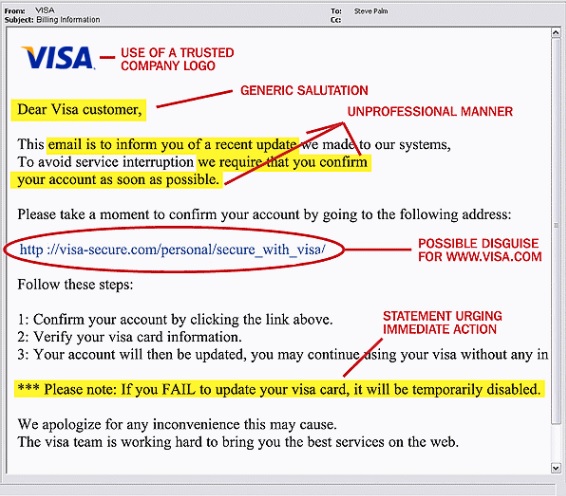Phishing is on the rise - again. And much of it is taking a more sophisticated form that before, making it easier for people to fall foul of the scammer.
A quick reminder
What is phishing about? It is the sending of malicious software that infects your computer or business network, via links or attachments to emails. It can corrupt your data, spread the malicious software to clients, crash your systems, or even enable criminals to see exactly what you are typing (including usernames and passwords).
1500% increase in Phishing attacks via attachments
We are all familiar with the eails, often purportedly from our email contacts, encouraging us to click on an unconvincing random link.
Then there are the more sophisticated versions, such as the example below (taken from VISA's website). 
If received randomly, you may be unlikely to be duped, but if the scammers know that you have a visa account, and are specifically targetting you as a known visa card user, they re likely to create a much more professional, branded email with a convincing link - and you are more likely to assume it is genuine.
The latest trend, which apparently can be more difficult for anti-virus software to catch and block, is to implant the malicious software (malware) within a document attachment - such as a MS Word document or PDF. Again, if the email is convincing and from a known sender, it is more likely that you will open this.
Identifying phishing emails
Aside from ensuring that your email security is up-to-scratch, your best defence is training yourself and your staff to habitually scan over emails looking for suspicious signs before clicking on an attachment or link. Allow this to become instinctive behaviour, and you will all but eliminate the risk of a potentially very serious attack on your systems, data and/or finances, with minimal additional burden.
Share our simple tips for recognising phishing (download our infographic, below) with your colleagues. And consider running your own phishing test. Look out for our forthcoming phishing test resources later in the year.